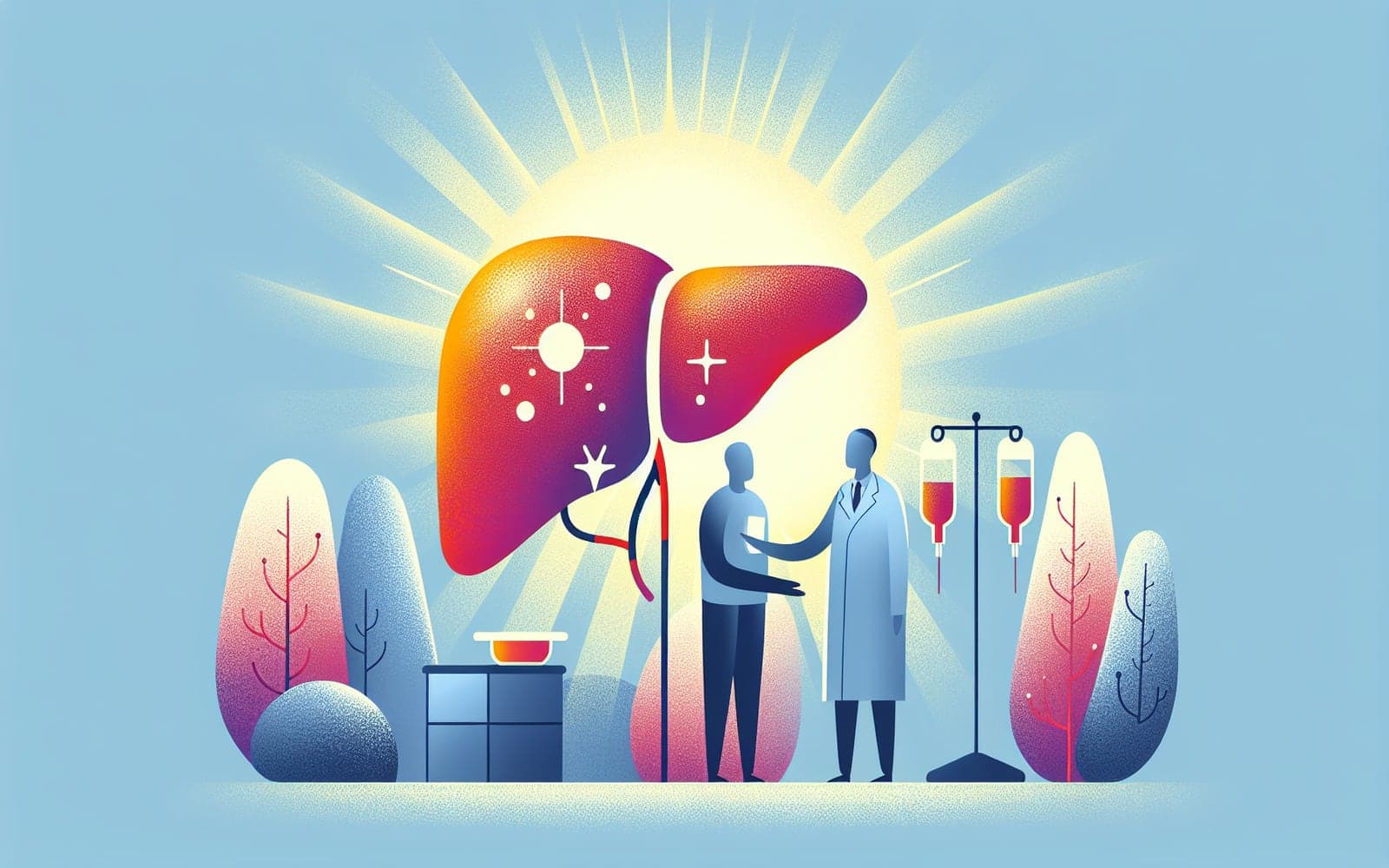Liver-Directed Therapies for Hepatocellular Carcinoma: Beyond Surgery
Published: Dec 21, 2023

Medically reviewed by Alan Lucks | MD, Alan Lucks MDPC Private Practice - New York on December 21st, 2023.
For patients with hepatocellular carcinoma (HCC) who aren't candidates for surgery, several liver-directed therapies offer hope. These treatments target the tumor directly within the liver, often with less impact on the body as a whole.
Contents
Ablation Techniques
Ablation therapies destroy tumor cells using heat, cold, or electrical currents. Radiofrequency ablation (RFA) and microwave ablation (MWA) use heat, while cryoablation uses extreme cold. These are typically used for smaller tumors, usually less than 3 cm in size. The procedure is minimally invasive, often done through the skin under imaging guidance.
Embolization Procedures
Embolization cuts off the blood supply to tumors. Transarterial chemoembolization (TACE) combines this with delivering chemotherapy directly to the tumor. Radioembolization uses tiny radioactive beads instead. These treatments can be effective for larger tumors or when there are multiple tumors in the liver. They're often used when ablation isn't possible.

Radiation Therapy Options
External beam radiation therapy (EBRT) and stereotactic body radiation therapy (SBRT) use high-energy rays to kill cancer cells. These can be precisely targeted to the tumor, minimizing damage to surrounding tissue. They're sometimes used for tumors that can't be treated with other local therapies, or in combination with other treatments.
Frequently Asked Questions
Most cause minimal discomfort and are done under local anesthesia.
It varies, but many patients need repeated treatments over time.
They can be curative for small tumors, but often control rather than cure.
Side effects vary by treatment but are generally well-tolerated.
Key Takeaways
Liver-directed therapies offer valuable options for HCC patients who can't undergo surgery, potentially extending and improving quality of life.
Wondering if liver-directed therapies might be right for you? Schedule a consultation with Doctronic to learn more.Related Articles
- What is Hepatocellular Carcinoma? Understanding the Basics of Liver Cancer
- Surgical Resection for Hepatocellular Carcinoma: When Is It the Right Choice?
- Systemic Therapies for Advanced Hepatocellular Carcinoma: New Hope on the Horizon
- Navigating HCC Treatment: The Importance of Multidisciplinary Care
References
European Association for the Study of the Liver. EASL Clinical Practice Guidelines: Management of hepatocellular carcinoma. J Hepatol 2018; 69:182.
Lencioni R, et al. Locoregional treatment of hepatocellular carcinoma. Hepatology 2021; 73 Suppl 1:186-197.
This article has been reviewed for accuracy by one of the licensed medical doctors working for Doctronic. Always discuss health information with your healthcare provider.

